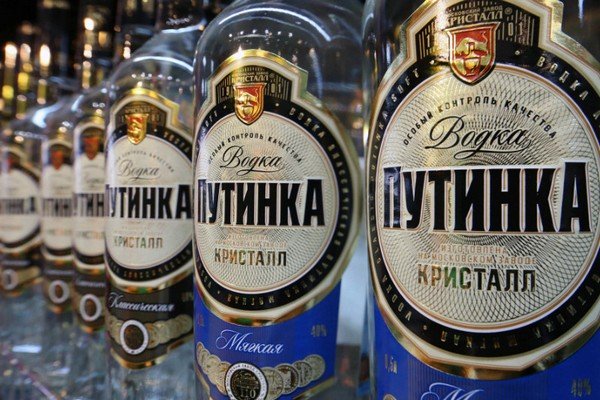
“Just when I thought I was out, they pull me back in” is something I would say at the risk of alienating the younger readership of this blog, but given that most of us are old here, it should be fine. I have been busy working on Russian Neo-Nazis, so I almost forgot that back in the simpler times I was also interested in how identities are eaten. Thankfully, a Russian outlet Agentstvo reminded me of that in their recent material about kefir. For those who are not Trader Joe’s or Eastern European Deli aficionados, kefir is a fermented milk drink from the Caucasus region with lactic bacteria and sometimes a tiny amount of alcohol (fermentation!). Kefir suddenly became the focus of a whole disinformation campaign by the Matryoshka disinformation network for a simple reason: Russia 1 Channel has released a “documentary” about Putin’s 25th anniversary of staying in power. In this film, while at “his apartment” he offers the probiotic goodness to the propagandist interviewing him.
Releasing the documentary was not enough, of course; it needed to generate some “authentic” popular engagement proving that the population still loves the dear leader. The bots got hard at work: Agentstvo points out that the bots falsely claimed that even Americans wanted to buy the kefir that Putin drank, not to mention the false claims that the brand that Putin supposedly has in his fridge had been sold out. “This proves Putin is just like us and eats the same foods,” “The president’s strength lies in how close he is to the people.” comments popped up on Vkontakte and Telegram. However, regular people barely responded to the momentous fridge revelation, unlike 12 years ago when a similar Putin kefir scoop led to a crop of sarcastic 4-line verses where people wondered why TF they needed to know that.
Why kefir?
Kitchen is not an accidental space for everyday (foreign) policy action. Populist performances of supposedly patriotic food consumption have become a staple in political campaigns around the world. Discourse and practices around food buying, preparing, and eating not only constitute a public–private intersection that occur on a daily basis, but also represent a substantial assemblage of matter, body, and discourse, not to mention markers of exclusion and belonging.
During Russia’s sanction war with the West after the annexation of Crimea, Western food embargo was framed by the government in populist terms: if you are missing some French cheese, you are not a real patriot. The fact that the Russian government chose to emphasize the ban on foodstuffs that are often considered luxury products (as opposed to the simultaneous embargo of regular products that led to significant price increases) was meant to invoke a deeper, more populist notion of national pride. Russian foreign policy is for the regular people, not some kind of Westernized elites who crave mascarpone!
With the popularity of vodka Putinka in the place where a good kefir would take you (an interesting proxy for Putin’s actual popular support), it is not a surprise that the governmental PR machine is trying to engineer another rally around the leader moment. If you want “a man like Putin” or be a man “like Putin” you should also want to drink like him. Hence, mainstream media hyping the “sold out” Putin kefir and the ecstatic fantasies about Americans desperately trying to order the kefir from Ryazan’, instead of, you know, Monrovia.
I guess the day world leaders will stop trying to eat or drink their way to popular support will never come. But don’t let Putin turn you away from kefir, it’s good for us, old people.


0 Comments